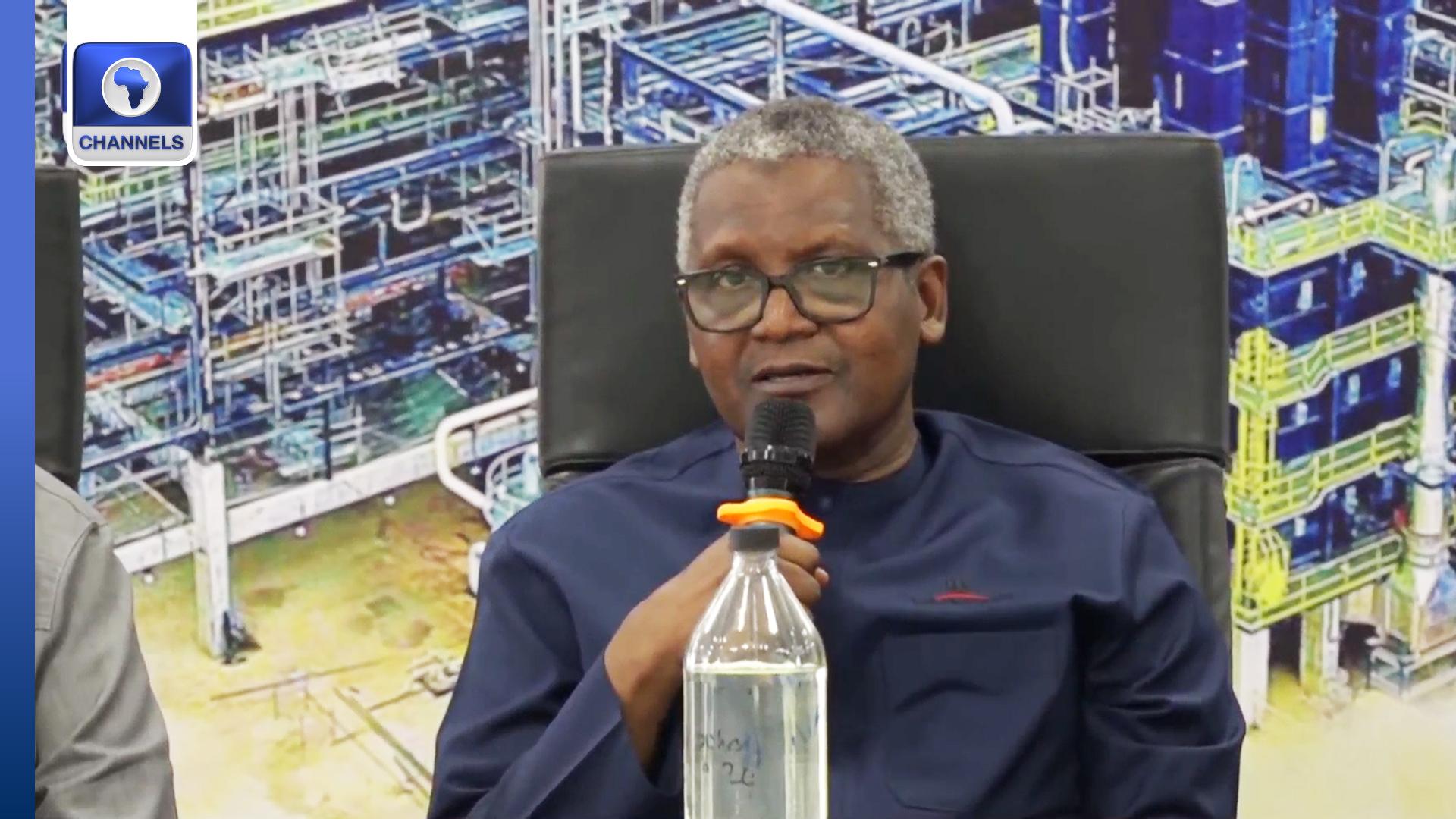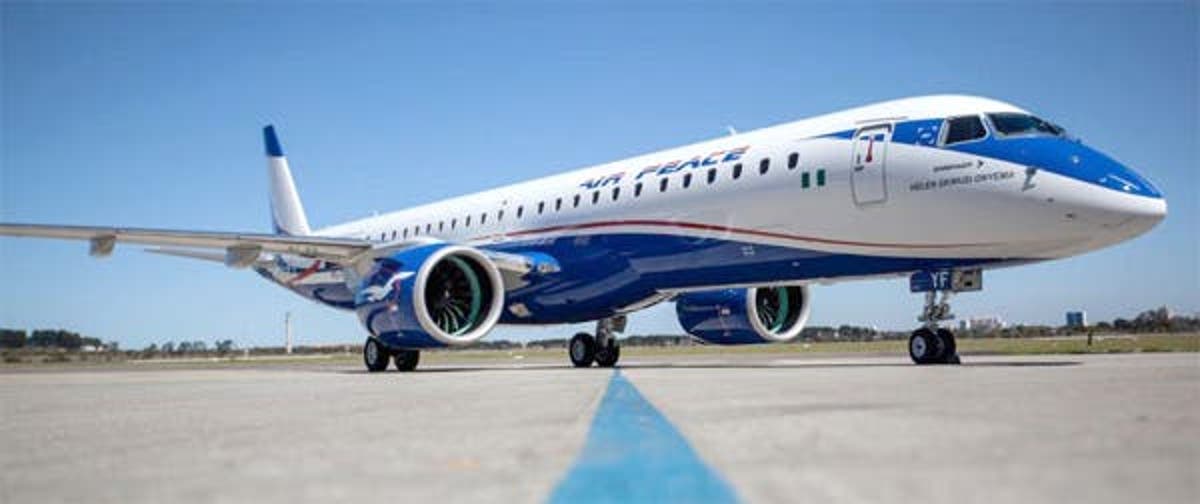Business
Naira appreciates by 5.22% as intra-day high records N1778/$1

Naira appreciates by 5.22% as intra-day high records N1778/$1
The Naira experienced a notable appreciation against the US dollar on February 26, 2024 as official exchange rate strengthened by 5.22% to N1582.94/$1.
However, the Naira experienced heightened demand pressure, resulting in an intra-day high of N1,778 against the dollar.
This increase exacerbated the ongoing depreciation trend of Nigeria’s currency, highlighting the volatility and challenges faced in the foreign exchange market.
Data from the Nigerian Autonomous Foreign Exchange Market (NAFEM), the official platform for foreign exchange trading, revealed a significant appreciation of the domestic currency by 5.22%, with the Naira concluding the day at N1,582.94 per dollar.
This represents an N82.56 drop or a 5.22% increase in the local currency compared to the N1,665.5 closed on Friday.
The intraday high recorded a record high of N1778/$1, while the intraday low was N1300/$1, representing a wide spread of N478/$1.
According to data obtained from the official NAFEM window, forex turnover at the close of the trading was $154.16 million, representing a 1.47% increase compared to the previous day.
The Naira also appreciated against dollar in the parallel forex market, where forex is unofficially traded, with the exchange rate quoted at N1,650/$1, reflecting a 6.06% increase from the N1,750 rate it closed at the previous day.
READ ALSO:
- Lawmakers’ salaries too small for job responsibilities -Deputy Speaker
- Stampede, deaths: Customs suspends sales of seized edibles
- Tinubu orders creation of youth unemployment benefits
The Great British Pound (GBP) stood at £1/N2100, an increase from £1/N2,260 recorded the previous day, this marks a notable increase of 7.62% compared to the rate recorded the previous day. Additionally, the Naira appreciated against the Euro by 5.95%, closing at N1850/EUR1 compared to N1960/EUR1 reported the previous day.
In the cryptocurrency market where forex is sold using stablecoins, the Naira also settled at N1,637.30/$1.
Newstrends reports the Central Bank of Nigeria (CBN) plans to introduce stringent measures on the purchase of foreign currencies through Bureau De Change (BDC) operators, with a specific focus on transactions related to overseas education and medical expenses.
As part of the apex bank’s revised regulatory guidelines for BDCs in Nigeria, there will be a cap on foreign currency purchases for school fees at $10,000 per customer annually.
This process requires the transaction to be conducted through the BDC’s domiciliary account with a Nigerian bank, ensuring direct payment to the educational institution.
The proposed guidelines read, “BDCs may sell foreign currency up to the equivalent of USD10,000 to a customer for school fee once a year. Such fee, which shall be transferred from the BDC’s domiciliary account with a Nigerian bank, shall be paid directly to the school.”
It also stipulates that such transactions must be accompanied by a set of documents: a duly filled out e-Form A, proof of admission or course registration, the educational institution’s bill or invoice, and, for postgraduate studies, a copy of the undergraduate degree certificate or an officially verified statement of results.
Naira appreciates by 5.22% as intra-day high records N1778/$1
Business
I’m honoured, excited over World Bank’s appointment – Dangote

I’m honoured, excited over World Bank’s appointment – Dangote
President and CEO of Dangote Group, Aliko Dangote, has expressed gratitude following his appointment to the World Bank’s Private Sector Investment Lab, a global initiative aimed at accelerating private investment and job creation in emerging economies.
In a statement confirming the development, Dangote described the appointment as both an honour and a reflection of his long-standing commitment to economic development through private enterprise.
“I am both honoured and excited to accept my appointment to the World Bank’s Private Sector Investment Lab, dedicated to advancing investment and employment in emerging economies,” Dangote said.
“This opportunity aligns with my long-standing commitment to sustainable development and unlocking the potential of developing economies.”
He referenced the successes of the so-called Asian Tigers, economies that experienced rapid growth through strategic investment, as a source of inspiration for advancing similar outcomes in other parts of the world.
The World Bank announced Dangote’s inclusion on Wednesday as part of a broader expansion of the Lab, which enters a new phase focused on scaling up solutions that attract private capital and generate employment in developing countries.
Other newly appointed members include Bill Anderson, CEO of Bayer AG; Sunil Bharti Mittal, Chairman of Bharti Enterprises; and Mark Hoplamazian, President and CEO of Hyatt Hotels Corporation.
READ ALSO:
- Akpabio to represent Tinubu at Pope Francis funeral
- PDP will come out stronger, Saraki reacts to Okowa, Delta gov defection
- Countries eligible to enter US without visas for 90days (full list)
World Bank Group President Ajay Banga noted that the expanded membership underscores the institution’s focus on integrating private-sector leadership into its strategy for global job creation.
“With the expanded membership, we are mainstreaming this work across our operations and tying it directly to the jobs agenda that is driving our strategy,” Banga said.
“This isn’t about altruism—it’s about helping the private sector see a path to investments that will deliver returns, and lift people and economies alike. It’s central to our mandate.”
The lab, which was co-chaired in 2023 by Canadian Prime Minister Mark Carney, previously sought to mobilise £1 trillion in sustainable investment, particularly targeting energy transition projects in emerging markets.
Aviation
Air Peace suspends flights nationwide over NiMet strike

Air Peace suspends flights nationwide over NiMet strike
Air Peace has suspended all its flight operations across the country due to the ongoing strike by the Nigerian Meteorological Agency (NiMet).
The airline said in a statement on Wednesday that it was also suspending operations due to the unavailability of QNH (hazardous weather) reports required for safe landings.
“Due to the ongoing NiMet strike and the unavailability of QNH (hazardous weather) reports required for safe landings, Air Peace has suspended all flight operations nationwide until the strike is over,” Air Peace said.
“Your safety is our top priority. We appreciate your understanding and will share updates as the situation unfolds.”
The airline had earlier announced that the NiMet strike could lead to flight delays and cancellations across its network.
Air Peace added that it was monitoring the situation and working with relevant stakeholders to minimise the impact on customers’ travel plans.
Employees of NiMet commenced a nationwide indefinite strike over welfare issues on Wednesday.
Some of the issues raised involve “NiMet’s refusal to negotiate or implement agreed financial allowances and unresolved entitlements,” including wage awards, peculiar allowances, and outstanding payments from the 2019 minimum wage.
They also accused the management of the agency of withholding important documents, ignoring requests for inclusion of omitted staff in past payments, and neglecting key training programmes in favour of executive retreats.
Business
Nigeria’s gas production increases by 15.6% to 227,931.65 mscf

Nigeria’s gas production increases by 15.6% to 227,931.65 mscf
Nigeria’s gas output has increased 15,6 percent month-on-month, MoM, to 227,931.65 million standard cubic feet, mscf, in March 2025.
But on year-on-year, YoY basis, the nation’s gas output recorded a marginal increase to 227,931.65 mscf in March 2025, from 198,353.62 mscf, recorded in the corresponding period of 2024.
Data obtained from the Nigerian Upstream Petroleum Regulatory Commission, NUPRC, Gas Production Status reports indicated that of the total of 227,931.65 mscf produced in March 2025, 119,552.75 mscf was associated while 108,378.90 mscf was non-associated gas.
Associated gas is extracted in the process of producing crude oil while non-associated gas is produced without crude oil after much investment, exploration and development.
The Ministry of Petroleum Resources (Gas), which is directly involved in the development of policies, targeted at increasing investment in the sector said efforts have been made to increase investment and production of gas in Nigeria.
Similarly, in its recent report obtained by Vanguard, the Nigerian LNG Limited stated: “We are fully committed to expanding our operations with the NLNG Train 7 Project, which will boost our production capacity by 35%, increasing from 22 Million Tonnes Per Annum (mtpa) to 30 mtpa. This project underscores our role as a key player in the global LNG market and positions Nigeria as a top-tier supplier of LNG, leveraging its vast proven gas reserves of 202 trillion cubic feet (the 9th largest globally).
Vanguard
-

 metro1 day ago
metro1 day agoTruck falls from Lagos bridge on two buses
-

 metro1 day ago
metro1 day agoHow Access Bank staff secretly filmed 400 colleagues naked in office
-

 Education2 days ago
Education2 days agoJAMB officials seize candidates’ hijab at Caleb varsity, Muslim students kick
-

 Entertainment10 hours ago
Entertainment10 hours agoKollington fires back at Wasiu Ayinde K1
-

 metro3 days ago
metro3 days agoOmokri : How Tinubu’s political mastery started with Abiola, says El-Rufai, Obi’s forces can’t stop him
-

 International2 days ago
International2 days agoUS releases 41 countries granted 90-day entry without visas (full list)
-

 metro1 day ago
metro1 day agoDSS arrests British Army Officer, others, seizes 57 AK47
-

 metro3 days ago
metro3 days agoGroom cancels wedding, marries another lady same date, venue











